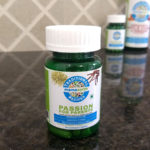Walk down any pharmacy aisle, and you’ll find rows of colorful multivitamin bottles promising better health, glowing skin, sharper focus, and endless energy. But do these magic pills actually deliver — or are they just expensive placebos?

Let’s break down the truth about multivitamins — what science says, when they’re useful, and how to know if you really need them.
The Multivitamin Myth: Why Everyone Thinks They Need One
Multivitamins have been marketed as the ultimate insurance policy for your health. Busy lifestyle? Pop a multivitamin. Missed a few meals? Pop a multivitamin.
While this seems logical, the reality is far more complex. Most healthy adults who eat a balanced diet are already getting the essential vitamins and minerals they need — no extra pill required.
But here’s the twist:
Multivitamins can be extremely beneficial — if you know when and how to use them.
Who Actually Needs a Multivitamin?
While popping one daily isn’t necessary for everyone, some people can genuinely benefit:
✅ Pregnant or breastfeeding women — Increased nutrient demands make supplements vital.
✅ Vegetarians and vegans — Nutrients like B12, iron, and omega-3 can be tricky to get from plant-based diets alone.
✅ People with nutrient absorption issues — Conditions like Crohn’s, celiac, or post-surgery recovery may hinder proper absorption.
✅ Adults over 50 — Aging reduces your body’s ability to absorb key nutrients like B12 and vitamin D.
✅ Busy professionals or parents — If your diet regularly skips fresh fruits, veggies, or whole grains, a multivitamin might help fill the gaps.
Example: After turning 55, Priya’s doctor recommended a B-complex and calcium supplement. Within weeks, her energy improved, and her frequent leg cramps disappeared.
What Science Says About Multivitamins (And What It Doesn’t)
Studies on multivitamins are mixed — and that’s where the confusion begins.
🔍 What they CAN help with:
- Preventing specific deficiencies
- Boosting energy if your body lacks key nutrients
- Improving bone health with calcium and vitamin D
- Supporting immune health, especially in colder months
❌ What they WON’T do:
- Cure diseases or prevent major illnesses overnight
- Instantly improve mood, memory, or focus (without addressing underlying issues)
- Replace a healthy diet
The key takeaway: Multivitamins are a supplement — not a magic fix.
Multivitamin Pitfalls: Don’t Fall for These Traps
Many brands rely on marketing tricks to convince you their product is essential. Watch out for these red flags:
🚨 Mega-Doses: Some brands pack far beyond the recommended daily dose, which can be harmful. For example, excess vitamin A can damage your liver.
🚨 Unnecessary Ingredients: Multivitamins claiming to support “detox,” “anti-aging,” or “stress relief” often include unproven additives.
🚨 Artificial Fillers and Dyes: Lower-quality brands may use synthetic ingredients with no real nutritional benefit.
Pro Tip: Always look for a reputable brand with third-party testing for quality assurance.
The Best Way to Get Your Vitamins Naturally
Before rushing to buy supplements, focus on building a nutrient-rich diet. These natural food sources are packed with essential vitamins:
🥦 Vitamin C – Oranges, guavas, capsicum
🥬 Iron – Spinach, lentils, and chickpeas
🍳 Vitamin D – Fortified dairy products and sunlight exposure
🥜 B vitamins – Whole grains, nuts, and seeds
🥛 Calcium – Milk, yogurt, paneer
Example: Kavita, a working mom, replaced her processed snacks with fresh fruits, nuts, and yogurt. Within weeks, her energy improved — no supplements required!
When to Consider a Multivitamin (and Which One to Choose)
If you decide to take a multivitamin, follow these tips to make the best choice:
✅ Choose One with Essential Nutrients: Focus on key vitamins like B-complex, vitamin D, calcium, and iron.
✅ Avoid Mega-Doses: Stick to the recommended daily allowance (RDA) unless prescribed otherwise.
✅ Check for Certifications: Look for brands certified by trusted organizations like USP, NSF, or ISI for quality assurance.
✅ Read the Label: Avoid excessive fillers, dyes, or artificial ingredients.
Pro Tip: Tablets are great, but gummy vitamins often contain added sugars.
So… Are Multivitamins Worth It?
✔️ If you’re part of a group that needs extra nutrients — YES.
✔️ If you struggle to maintain a balanced diet — YES, but as a backup.
❌ If you’re hoping for instant energy, weight loss, or miracle results — NO.
Final Thought: Instead of blindly popping a pill, focus on nourishing your body through whole foods. A supplement should only fill the gaps — not replace smart eating habits.
What’s your experience with multivitamins? Have they worked for you? Share your thoughts below!




Leave a Reply